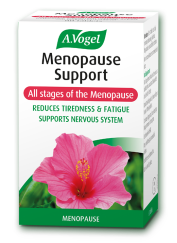An introduction to menstrual cycle and menopause
Control of a woman’s monthly cycle originates in a part of the brain known as the pituitary gland. This produces two hormones which act on the female reproductive organs to perform two main tasks:
- They cause the ovaries to produce and secrete an egg each month
- They thicken the lining of the womb preparing it to feed the fertilised egg
At a certain time of the month, an egg is released from the ovaries – this is known as ovulation. The egg then travels into the womb where it looks for a handsome sperm, hoping to be fertilised. When this happens, the fertilised egg embeds itself into the prepared womb lining to be nurtured by the womb. This will be the start of a new life.
However, if the egg is not fertilised after a few days, it dies. The thickened lining of the womb is then not required, it starts to disintegrate and is shed from the womb approximately 14 days after ovulation. This is what a woman will experience as the monthly period or menstruation.
The lining of the womb then goes through the cycle again, producing a fresh layer of cells in the hope of receiving a fertilised egg the following month.
The menstrual cycle and PMS
PMS (the premenstrual syndrome) is a set of symptoms experienced by women each month, coinciding with certain points of the menstrual cycle.
Symptoms are varied and 150 have been described. They are either physical (period or breast pain, bloating, weight gain) or psychological (low mood, increased feelings of stress and anxiety).
These same symptoms may also be experienced ‘premenstrually’ by women not suffering from PMS just before menstrual bleeding starts. In these situations, symptoms are mild and transient (lasting a few hours). PMS is considered to be the cause only if symptoms are troublesome enough to interfere with quality of life and normal daily function.
Women suffering PMS report a distinct pattern where symptoms appear between the time of ovulation and disappear soon after menstrual bleeding starts. If symptoms persist throughout the month, it is unlikely to be related to PMS.
PMS may affect any menstruating woman. It stops during pregnancy, whilst on the oral contraceptive pill and with the menopause. However, in women coming up to the time of menopause, there may be a period lasting up to a few years when she might feel increasingly troubled by PMS.
The menstrual cycle and menopause
As a woman approaches the menopause, it is not uncommon for the menstrual cycle to become irregular or for menstrual bleeding to be heavier. These symptoms can be experienced up to a few years before periods finally stop and is known as the peri-menopause.
As a woman becomes older, childbearing becomes more risky for both mother and child and nature has a way of telling the body that it is not as fit as it once was, especially for the important task of carrying a child.
Production of the pituitary hormones decline and become erratic, leading to irregular periods. The ovaries become less responsive and they eventually stop releasing eggs. The regular thickening of the lining of the womb becomes redundant and with a reduction of both oestrogen and progesterone, periods stop.
In this way, menopause signals the end of a woman’s reproductive career!
The decline in hormone levels during the menopause and peri-menopausal period can give rise to a variety of menopause symptoms, including hot flushes and night sweats.








